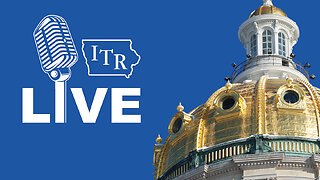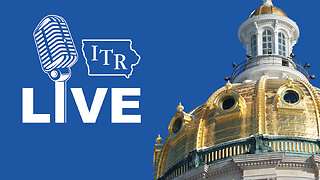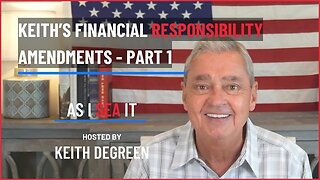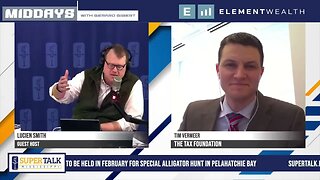Unwrapping Iowa's Fiscal Blueprint: A Tax Reform Breakdown
## The Emergence of a Tax Reform Agreement
Iowa's leadership on tax policy has set the stage for an extraordinary era in the state's fiscal management and potential economic growth. After a series of surpluses and the amassing of a substantial balance in the taxpayer relief fund, Iowa is poised to solidify its reputation as a leader in conservative budgeting and tax relief. The recent alignment between the state's House and Senate on a forthcoming tax policy not only underscores their commitment to bolstering Iowa’s economy, but it also reveals the state’s robust fiscal foundation amidst the broader national economic challenges.
The implications of this alignment are far-reaching. With a bipartisan consensus, tax reforms are more likely to be executed swiftly and efficiently, impacting tax year 2024 and allowing residents and businesses to plan accordingly. These reforms aim not just to adjust and reduce tax rates but to pave the way toward the eventual elimination of income tax, positioning Iowa as a bastion of financial prosperity and a competitive player for both businesses and individual taxpayers.
## Strengthening Fiscal Policy Through Constitutional Amendments
Iowa's pursuit of a more robust and resilient financial structure is also visible in the realm of constitutional amendments. Currently, there are two key proposals under consideration aimed at reinforcing Iowa's commitment to prudent fiscal governance.
### Mandatory Supermajority for Tax Increases
The first constitutional amendment proposed requires a supermajority vote in both legislative houses to enact individual or corporate income tax hikes.
- A two-thirds majority vote would act as a formidable barrier against tax increases, compelling a high level of bipartisan support for such actions.
- Approximately 16 other states have supermajority provisions for tax increases, signaling the commonality and validity of this protective measure.
### Establishment of a Flat Tax
The second constitutional amendment is a groundbreaking proposal to enshrine the flat tax into the state constitution.
- This would bar future legislatures from shifting back to a progressive tax system with multiple brackets.
- Advocates argue that a flat tax system is more straightforward, equitable, and efficient for all taxpayers.
## Future Prospects for Iowa's Economy
With its drive to refine tax structures and codify fiscal responsibility, Iowa paves a path that could yield significant economic progress and stability. The potential benefits extend beyond immediate tax relief, suggesting long-term gains in terms of economic competitiveness and attractiveness to both individuals and businesses.
- A fiscally responsible environment is likely to yield benefits that permeate through the state's economy, enhancing prosperity for its residents.
- The implementation of balanced fiscal policies can lead to a more predictable business environment, thereby fostering long-term growth and sustainability.
In moving forward with these initiatives, Iowa sets an ambitious course for a future where fiscal responsibility and economic growth go hand in hand, making it an attractive destination for both taxpayers and corporations alike. The state's strategies and proposed constitutional amendments place it on the cusp of becoming a template for fiscal excellence in the United States.
-
 34:24
34:24
ITR Live Podcast
1 month agoIowa Legislature Recap: Key Taxpayer Victories
24 -
 42:52
42:52
ITR Live Podcast
3 months agoJonathan Williams: Iowa's Tax Triumphs
15 -
 1:30
1:30
JbQuinnon
1 year agoThe Shrinking Tax Base How Declining Fertility Rates are Impacting State Budgets Instagram Post Squa
116 -
 7:20
7:20
Anthony Galli
2 years agoShould we raise taxes to cut spending?
195 -
 9:56
9:56
Therese Vaux de la Fontaine "Queen of France"
7 months agoFederal Standardized Property Tax Rate & Abolishing State Income Tax
4 -
 42:18
42:18
As I SEA It
9 months agoKeith's Financial Responsibility Amendments - Part 1
8 -
 2:02
2:02
WTMJMilwaukee
9 months agoWisconsin Republicans revive income tax cut
6 -
 5:53
5:53
AmericanLegislativeExchangeCouncil
10 months agoState Fiscal New Year and Latest State Tax Cut Efforts: Jonathan Williams on American Radio Journal
1 -
 20:42
20:42
SuperTalkMississippi
1 year agoMississippi's Proposed Income Tax Elimination
1 -
 3:36
3:36
Latest News From CFP and INFOWARS
1 year agoIRS releases official plan to waste $80 Billion…
8